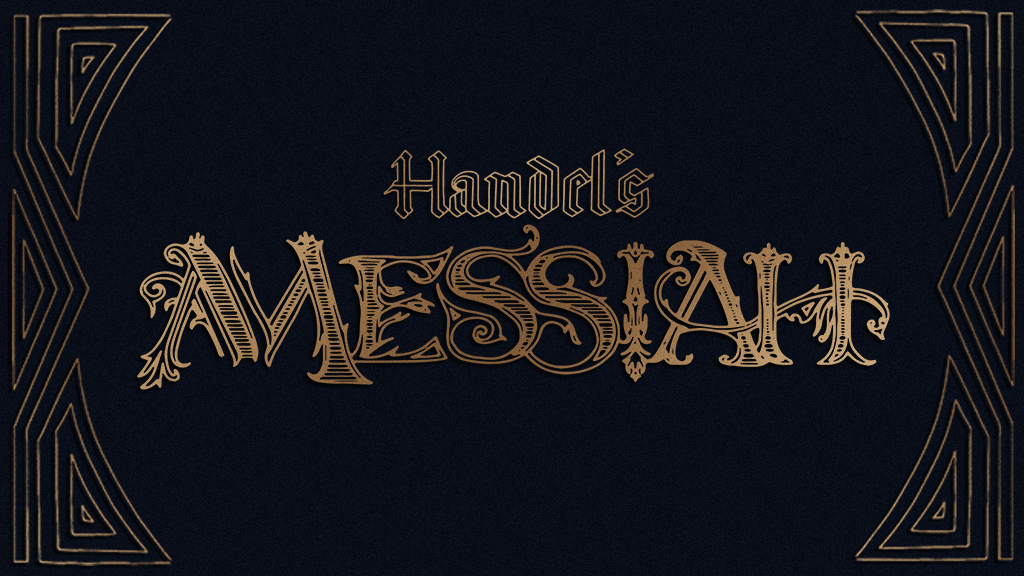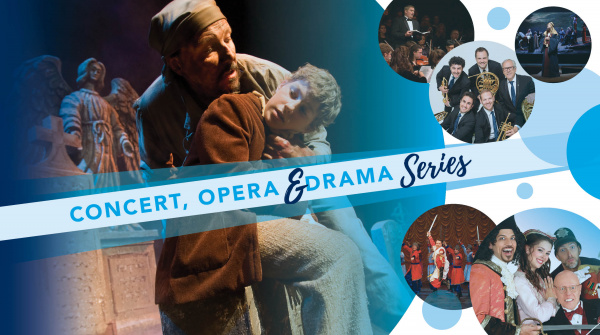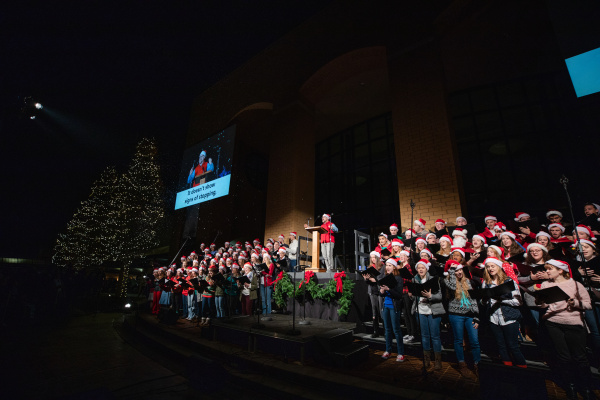BJU’s combined choirs and the University Symphony Orchestra will perform Handel’s Messiah at 7:30 p.m. on Dec. 12 and 13 in Rodeheaver Auditorium.
The BJU Chorale, Concert Choir, Collegiate Choir and University Singers comprise 200 voices, which will join together in the celebratory proclamation of Christ’s birth, death and resurrection.
Handel’s Messiah is a break in form for recent BJU Concert, Opera and Drama series offerings. Messiah is neither concert, opera nor drama: it’s an oratorio, a musical composition that borrows elements from all three.
What is Handel’s Messiah?
Oratorios are like operas or dramas in that they share the same components of distinct characters, and a plot line as well as a choir, an orchestra and soloists. Unlike operas, they’re not staged with costumes and sets or character interaction. And while both share a narrative element, opera and play plots pull from folklore, mythology and literature. Oratorios recount spiritual narratives pulled from Scripture and theology.
Messiah debuted in April of 1742, written in a marathon composing session that spanned only 24 days. Christopher Jennens, the librettist, adapted Messiah’s words from the King James Version of the Bible, the Book of Common Prayer and the Coverdale Psalter. According to Handel scholar Dr. David Vickers, Jennens “intended Messiah as a statement of faith in Christ’s divinity, in reaction to the increasing popularity of rationalized atheism.”
An Unlikely Christmas Tradition
Handel composed the oratorio with Easter in mind, but Messiah evolved into a Christmas tradition in the 19th century. Records suggest that audiences preferred Messiah around Christmas time since Handel already had so many Easter oratorios. Only the first third of the oratorio concerns Christ’s birth, but that was enough for audiences to prefer hearing it at Christmas.
BJU choirs first performed Messiah in 1935, and the concert remained an annual tradition for many years. In time, it fell out of the annual schedule, but BJU doesn’t let too much time pass between performances of Handel’s best-remembered oratorio. The last time the BJU choirs and orchestra united to perform Messiah was 2014, under the direction of Eliezer Yanson Jr. Warren Cook will conduct this year’s performances.
The version audiences will see at the upcoming concert will be a director’s cut: only 90 minutes out of the oratorio’s original run time of 3 hours. BJU’s cut of the original includes 10 choruses with selections for soprano, alto, tenor and bass soloists. The featured soloists include Laura Brundage, Marianne Freeman, Jason Rush and Dr. David Parker.
Get your tickets now for Handel’s Messiah on Dec. 12–13.








